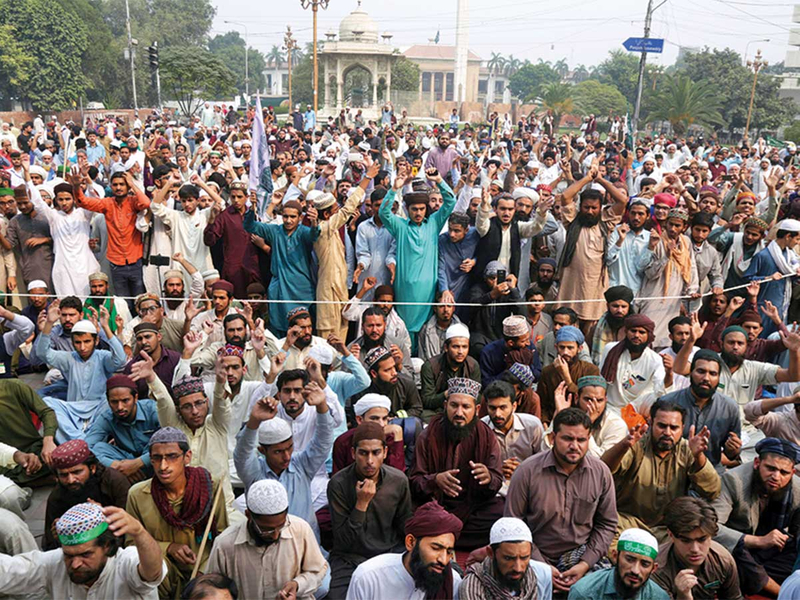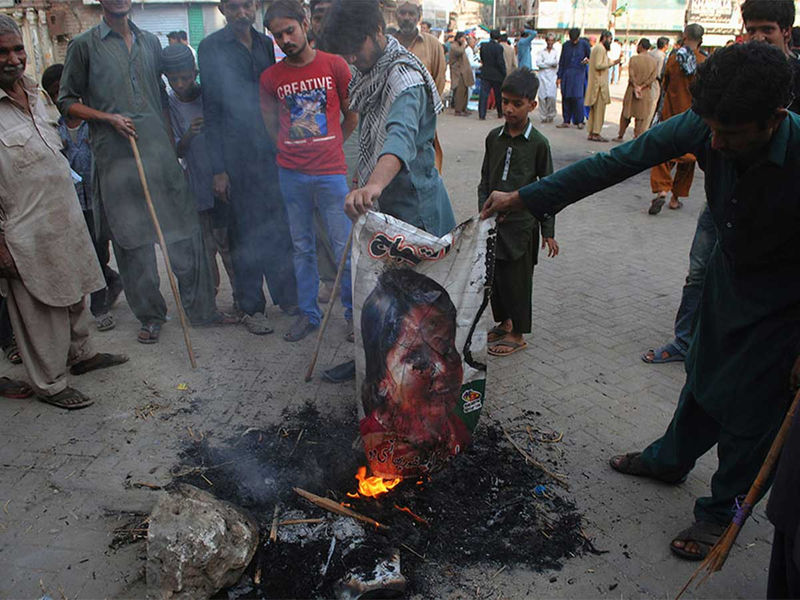
Asia Noreen is Christian. Pakistan is a Muslim country.
Imperative it is to note that the Supreme Court verdict is based on the exhaustive review of the case, and is not an expression of mercy or a pardon given to a guilty person sentenced to death.

The decision is made on the merit of the case: inadequate evidence, a delayed FIR, differing witness statements, complainant’s muddle regarding the date of the suspected crime, massive inconsistencies apropos FIR and arrest, untruths of the primary complainants, and Asia Bibi’s extrajudicial confession.
In 2010, Asia Noreen, referred to as Asia bibi, was sentenced to death for an alleged case of blasphemy. A small fight in a village between a poor Christian woman and some Muslim women snowballed into a case that became global news. Objecting to Asia using the glass the Muslim women used, heated words were exchanged, and later, the two-way argument turned into a war between two religions: Islam and Christianity.
Asia was jailed and sentenced to death under Section 295-C of the blasphemy law of the Pakistan Penal Code. The British-created blasphemy law became draconian in 1986 when the military dictator-turned-president General Zia-ul-Haq added the new clause that mandated death penalty for blasphemy. The number of blasphemy cases between 1927-1986 was only seven; in 2015, it reached 1,335.
The blasphemy law originally created to keep things harmonious between people of different faiths became a tool to legitimise religious persecution, establish a social order based on the faith of citizens, a political mechanism to keep people divided, settle personal and political scores and further alienate people of faiths other than Muslim. Many innocent people have been harmed or killed using the pretext of (unproven) blasphemy, bringing to fore many questions most of which go unanswered, or even unasked.
The macabre reality of discourse on misuse of religion has never been so glaring as in the case of accusations of blasphemy and application of blasphemy law in Pakistan. The assassination of then Governor of Punjab Salman Taseer on January 4, 2011 and Federal Minister of Minority Affairs Shehbaz Bhatti on March 2, 2011 is the black mark in the bloodied history of a country that is claimed to have been made in the name of religion while pledging to provide a safe home for people of all faiths. Both leaders championed the cause of justice for Asia bibi and rights of non-Muslims while condemning widespread persecution in the name of religion, and misuse of religion for various purposes.
The aftermath of Asia bibi’s release verdict is the result of decades-long individual and societal indoctrination and conditioning of a large part of society, based on distorted interpretations of religion.

In an almost 97 per cent Muslim Pakistan, the paranoia is baffling, to say the least. Sanctity of religion is a given for any devout follower of that religion, and in Pakistan, it is the same. But it is beyond that in Pakistan. Here self-avowed vigilantes of religion and self-declared guardians of faith chanting the name of Allah and Prophet Mohammad (PBUH) wreak havoc in the country in complete disregard of teachings of Islam that places tremendous value on moral restraint, compassion, mercy and forgiveness.

The irony is black: Instead of rejoicing that a Christian woman accused of blasphemy was found after a thorough study of her case by the highest court of the country to be NOT guilty of the alleged disrespect of Prophet Mohammad (PBUH), religious groups and many so-called educated and enlightened people erupted in outrage.
Pakistan after the verdict saw hordes of sticks-wielding bearded men, shouting menacing slogans for Aasia bibi’s death, burning tyres, motorcycles and rickshaws of poor people, barricading highways and roads, and creating an environment of chaos and fear in a Muslim country that had done a very noble thing for its Christian citizen, found not guilty of blasphemy. The protest led by Tehreek-e-Labbaik Pakistan’s (TLP) Khadim Hussain Rizvi was a stark throwback to the TLP’s 2017 protest against the then government.

Three days later after a loss of billion-plus rupees in damage to state and private property, in what is said to be an expected capitulation, the government signed an agreement with TLP, and thus ended the threats to the honourable judges, government of Prime Minister Imran Khan and calls for sedition in army. More protests are promised in case of governmental non-fulfilment of TLP’s demands
Closing of schools, offices and businesses, paralysing the working of the country for days is a direct challenge to the writ of the state. Yet it happens. On loop.

Extremist elements that are nurtured, enabled and promoted in the name of religion find no electoral success, but still manage to keep their influence on a huge segment of society through exploitation of religious sentiments.
A blatant agenda of hegemony is perpetuated through distortion of religious teachings, inciting people to violence and anarchy, creating unrest in a country that has many serious issues to deal with at any given time.
All governments are responsible for making these fringe elements mainstream, while the military establishment is alleged to be the creator and main benefactor of most of these organisations.
The victim is primarily and eventually Pakistan.
Mehr Tarar is a writer, columnists and former op-ed editor of Daily Times, Pakistan. The author's twitter handle is @mehrtarar












